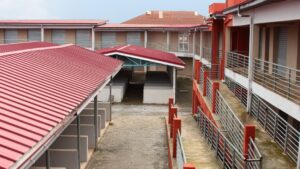
Speaker Mike Ocquaye
Members of the public who intend to visit their Members of Parliament at the nation’s legislative house will no longer be allowed to do so. They have been asked to visit the MPs at home or communicate with them electronically.
“No visitors are allowed in Parliament unless otherwise stated, and individually permitted,” a directive given by the Speaker of Parliament, Professor Aaron Mike Oquaye, and aired on the public address system of Parliament, said.
The directive is part of measures to contain the spread of the novel coronavirus disease. The directive takes immediate effect.
The Speaker has further directed the Marshal of Parliament and the house’s security unit to regularly monitor attendance and inspect the various offices to ensure that the directive is fully complied with. The Acting Clerk of Parliament has also been directed to co-ordinate the implementation of the directive.
Leave
The Speaker also directed all staff of Parliament not identified as providing essential services critical to legislative business to proceed on their annual leave with immediate effect.
“All officers on contract or temporary appointment, National Service persons, MPs’ research assistants and other ancillary service providers working in the premises are required to take their leave and/or keep away from parliamentary precincts, except where they have been identified by the Human Resources Department as providing services critical to the smooth operations of the business of the House,” the directive said.
The Public Services Commission had previously asked all institutions to adopt measures such as shifts and annual leaves to reduce the number of workers reporting to the office.
In a memo, the Commission also suggested that non-essential employees such as National Service personnel, Nation Builders Corps (NaBCo) trainees and interns should be asked to stay home during this period.
Apart from parliament, other state institutions have also asked non-essential staff to go on leave.
Crack down on fake Covid-19 remedies
In a related development, over 34,000 unlicensed and fake products advertised as “remedies” for COVID-19 have been seized globally. The products were seized by police, customs and health regulatory authorities from about 90 countries.
The items were being sold through 2,000 online advertisements as “cure” for the coronavirus.
International Police Agency INTERPOL says Operation Pangea XIII, spearheaded by its officers, resulted in 121 arrests worldwide and the seizure of potentially dangerous pharmaceuticals worth US$14 million.
INTERPOL, based in Lyon, France, said that items seized included counterfeit facemasks, sub-standard hand sanitisers and unauthorised medication.
INTERPOL’s Secretary General, Jürgen Stock, said “the outbreak of the coronavirus disease has offered an opportunity for fast cash, as criminals take advantage of the high market demand for personal protection and hygiene products.”
“Once again, Operation Pangea shows that criminals will stop at nothing to make a profit,” he said, adding, “the illicit trade in such counterfeit medical items during a public health crisis shows their total disregard for people’s wellbeing, or their lives”.








